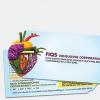Beta-Carotene can be produced synthetically or be naturally derived. If naturally derived, it is considered a color from a natural source. The FDA does not allow you to call a color natural if it is not naturally derived from the product it's used in. For example, if strawberry ice cream is colored with red beet juice concentrate, then your label can't claim naturally colored because the color came from red beets instead of strawberries. However, the label can claim colors from natural sources because the color is derived naturally.
Xanthan is natural. A lot of people don't like it and try to label it as artificial, however, it is a naturally derived food additive.
As previously mentioned, dextrose is derived from a number of agricultural products and is natural. It's not typically used as a sweetener though, and I've never heard of it as a preservative. Typically, it's used as a bulking agent.
I've never used Vitamin A Palmitate and can't help you there. But I just did a quick search, it looks like all of the Vitamin A Palmitate that is available for purchase is produced synthetically.
Artificial and Natural can be tricky terms. Generally, artificial means it is not found in nature and natural means it is found in nature. However, oftentimes naturally derived substances can also be produced synthetically. So you need to determine if the raw material that you have is synthetic or natural prior to making any natural claims.
Edited by Spidey, 12 January 2022 - 06:00 PM.















